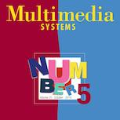Segmentation of Multiple Sclerosis (MS) lesions is a challenging problem. Several deep-learning-based methods have been proposed in recent years. However, most methods tend to be static, that is, a single model trained on a large, specialized dataset, which does not generalize well. Instead, the model should learn across datasets arriving sequentially from different hospitals by building upon the characteristics of lesions in a continual manner. In this regard, we explore experience replay, a well-known continual learning method, in the context of MS lesion segmentation across multi-contrast data from 8 different hospitals. Our experiments show that replay is able to achieve positive backward transfer and reduce catastrophic forgetting compared to sequential fine-tuning. Furthermore, replay outperforms the multi-domain training, thereby emerging as a promising solution for the segmentation of MS lesions. The code is available at this link: https://github.com/naga-karthik/continual-learning-ms
翻译:多发性硬化(MS)损伤的分解是一个具有挑战性的问题。近年来已经提出了若干基于深层学习的方法。但是,大多数方法往往是静态的,大多数方法往往是在大型专门数据集上训练的单一模型,没有很好地概括。相反,模型应该根据损伤的特性,不断不断地从不同医院中学习相继形成的数据集。在这方面,我们探索在8个不同医院的多调数据中进行MS 损伤分解的经验重播,这是众所周知的持续学习方法。我们的实验显示,重播能够实现积极的后向转移,并减少灾难性的遗忘,而不是顺序微调。此外,重播超越了多域培训,从而形成一种有希望的MS损害分解解决方案。这个链接可以查到该代码:https://github.com/naga-karthik/continual-learning-ms。
相关内容
Source: Apple - iOS 8




